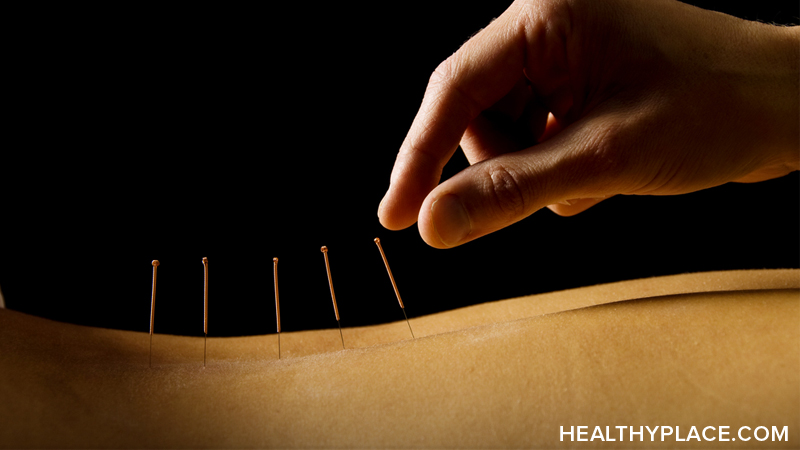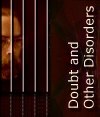Acupuncture for Depression

Overview of acupuncture as a natural treatment for depression and whether acupuncture works in treating depression.
What is it?
Acupuncture is a traditional Chinese treatment that has become increasingly popular in many parts of the world. Acupuncturists insert needles at particular points in the body and then manipulate these needles. Sometimes electric current is put through the needles. This is known as 'electroacupuncture'.
How does it work?
According to Chinese medicine there are two types of energy which flow through channels in the body. Illness results from an imbalance of these energies. Acupuncturists insert needles at particular points along the channels to correct the imbalance. Western scientists have come up with other explanations for the effects of acupuncture. Some research has found that acupuncture produces an increase in brain chemicals that are believed to be in short supply in people who are depressed.
Is it effective?
A number of studies have found that acupuncture helps depression and that it may be as effective as antidepressant drugs. However, the number of studies is still small. Some of these studies have looked at acupuncture with needles only, while others have looked at electroacupuncture for treatment of depression. Treatment typically involved acupuncture several times a week for 1 to 2 months. More research is needed to find out what type of acupuncture is best.
Are there any disadvantages?
None known, apart from discomfort from the acupuncture needles. Single-use needles are required.
Where do you get it?
Acupuncturists are listed in the Yellow Pages. Some GPs also practice acupuncture.
Recommendation - Alternative Treatment for Depression
Acupuncture appears to be a promising treatment for depression, but more research is needed to be sure it is effective.
Key references
Allen JBJ, Schnyer RN, Hitt SK. The efficacy of acupuncture in the treatment of major depression in women. Psychological Science 1998; 9: 397-401.
Luo H, Meng F, Jia Y, Zhao X. Clinical research on the therapeutic effect of the electro-acupuncture treatment in patients with depression. Psychiatry and Clinical Neurosciences 1998; 52: S338-340.
APA Reference
Staff, H.
(2009, January 11). Acupuncture for Depression, HealthyPlace. Retrieved
on 2025, September 18 from https://www.healthyplace.com/alternative-mental-health/depression-alternative/acupuncture-for-depression

 When you do decide to help yourself become more comfortable socially, you will be able to use all the skills and understandings covered throughout the Panic Attack Self-Help Program. Let me briefly remind you of some of these. Do not be misled by the fact that I describe them in only a few sentences. Most of these skills reflect the foundation upon which mental health professionals treat many anxiety disorders.
When you do decide to help yourself become more comfortable socially, you will be able to use all the skills and understandings covered throughout the Panic Attack Self-Help Program. Let me briefly remind you of some of these. Do not be misled by the fact that I describe them in only a few sentences. Most of these skills reflect the foundation upon which mental health professionals treat many anxiety disorders.